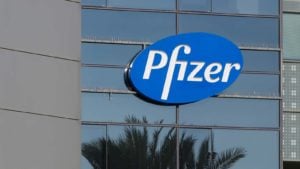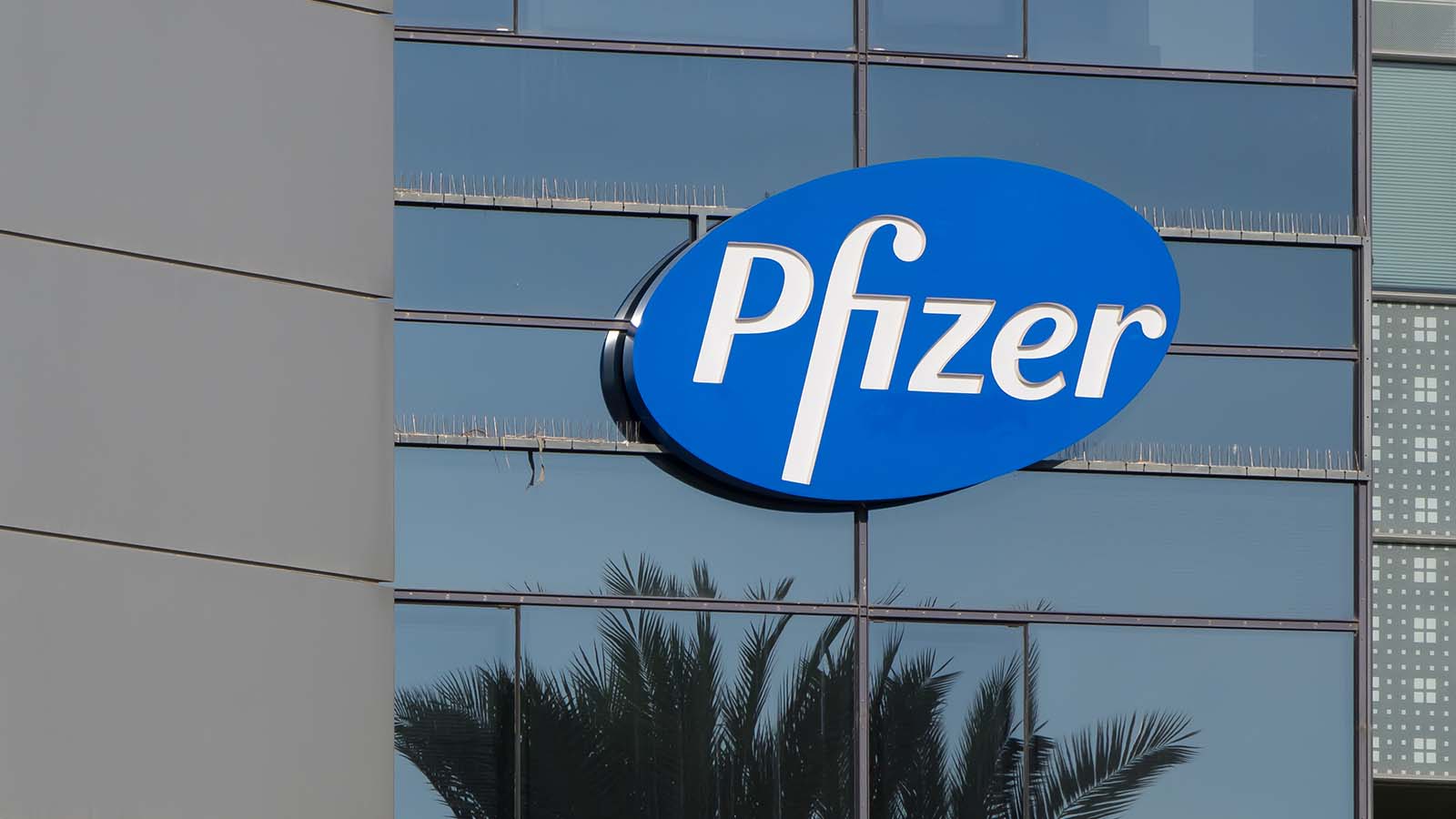Shares of Pfizer (NYSE:PFE) jumped more than 6% on Wednesday, after the company announced a plan to test some of its antiviral products as a potential treatment for the coronavirus from China.

More than 35 million shares traded on the news — about 48% more than normal — as investors looked for any positive news from the pharma community after the recent selloff.
So, does this mean that Pfizer stock is turning the corner?
I don’t think so.
What Is Moving PFE Stock?
Pfizer officials were among those pharma executives called to the White House on Monday in an attempt to soothe the markets and demonstrate that the White House was moving proactively to keep the coronavirus from turning into a pandemic.
The virus so far has infected more than 100,000 people in at least 78 countries. There have been 14 deaths in the U.S. and more than 3,300 around the world.
On Monday night, Pfizer announced it is working with a third party to screen experimental antivirals. Results could come by the end of the month, with human testing by the end of the year if the results are successful.
Even so, Pfizer is behind its rivals in the race for a coronavirus treatment. Gilead Sciences (NASDAQ:GILD) is testing an antiviral drug already in some Asian countries. AbbVie (NYSE:ABBV) donated Kaletra/Aluvia, its HIV treatment, to China to test as a possible coronavirus treatment.
Just a day after Pfizer’s announcement, the company’s chief scientific officer, Mikael Dolsten, seemed to downplay any notion that Pfizer — or any other company — would be a leader in a coronavirus treatment. Writing for Forbes, he said:
“… one company, one vaccine, one test or one medicine will not be an effective solution to overcoming the tremendous task at hand. This pursuit requires a crucial multi-pronged approach with a deep collaboration and partnership across the health innovation ecosystem — from the academic community, industry partners, policymakers and regulatory bodies. A challenge like coronavirus requires every organization to bring forward its resources and expertise to manage health risks that evolve daily.”
In other words, don’t except any bump in Pfizer stock to be sustainable.
Pfizer at a Glance
Despite Wednesday’s surge, Pfizer stock remains in an unenviable position. PFE is down 11% year-to-date and 19% in the last 12 months. ABBV and GILD, meanwhile are both up roughly 10%-20% in the last year.
In its most recent earnings report, Pfizer reported a fourth-quarter miss in earnings (55 cents per share against an expected 57 cents), but managed to beat on revenue ($12.69 billion against an expected $12.61 billion).
The company recorded an operating loss of $326 million for the quarter. It forecast 2020 earnings of $2.82 to $2.92 per share on revenue of $48.5 billion to $50.5 billion. Wall Street is expecting EPS of $2.90 per share and revenue of $50.2 billion.
Pfizer hopes to close its deal to merge Mylan (NASDAQ:MYL) with its Upjohn generic drug business sometime this year. If the deal closes, the new business will spin off into its own company. Its Upjohn has significant business in China, so Pfizer hopes that the newly formed company will become a global pharmaceutical leader. But there are legitimate short-term concerns about how the continuing coronavirus in China will affect testing and distribution.
More importantly for investors, the spinoff will immediately devalue PFE stock as the company loses its Upjohn assets. It’s also likely that Pfizer’s current 4.2% dividend will take a hit.
The Bottom Line
Pfizer stock has a “D” rating in my Portfolio Grader because of its weak earnings, sales and cash growth. And with the impending Mylan-Upjohn spinoff sapping PFE of assets, I don’t see anything this week to change that assessment.
There are better growth stocks out there than Pfizer.
Louis Navellier had an unconventional start, as a grad student who accidentally built a market-beating stock system — with returns rivaling even Warren Buffett. In his latest feat, Louis discovered the “Master Key” to profiting from the biggest tech revolution of this (or any) generation. Louis Navellier may hold some of the aforementioned securities in one or more of his newsletters.
Louis Navellier had an unconventional start, as a grad student who accidentally built a market-beating stock system — with returns rivaling even Warren Buffett. In his latest feat, Louis discovered the “Master Key” to profiting from the biggest tech revolution of this (or any) generation. Louis Navellier may hold some of the aforementioned securities in one or more of his newsletters.
